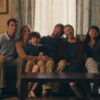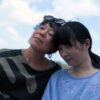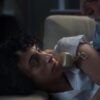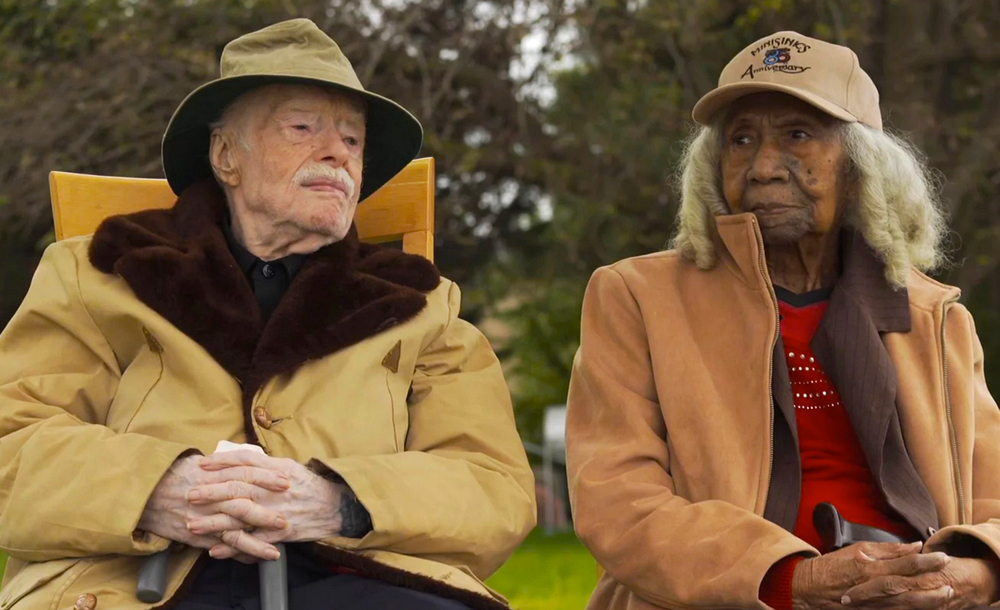One of the most powerful films to recently premiere at the True/False Festival in Columbia, Missouri was also one of its most concise. Then again, when your subjects are in their nineties, every moment is precious as Laura Checkoway learned herself and beautifully translates to the screen in “Edith+Eddie.”
Drawn in by the chance to document a compelling love story that drew national attention as Edith Hill and Eddie Harrison became the oldest pair of interracial newlyweds in the U.S., forging a bond over their shared habit of buying lottery tickets, the filmmaker stays to find something even more complex after the news trucks have left in learning of a growing legal battle between Edith and her daughter Patricia, who citing a diminished mental capacity, seeks to move Edith from her home in Virginia to Florida, which in effect would tear the couple apart. Checkoway tenderly captures the radiance of the couple in their everyday life, as well as that of the community around her including her daughter Rebecca and the local pastor Reverend Coles, but her compassion behind the lens proves especially vital once the family disagreement leads to a tipping point one night that Checkoway allows to unfold virtually unmediated, demonstrating the great disconnect between the intention of the law – in this case, legal guardianship that gives more authority to Patricia than those who are closest to Edith – and the human consequences of their application in reality.
As wrenching as “Edith+Eddie” becomes, it still resonates most immediately as an intimate portrait of two people whose company you will come to prize as much as they clearly do each other’s, and while they couldn’t be further away in demeanor from Lucky Torres, the tattoo-laden 30-year-old homeless mother of two who Checkoway profiled in her first feature “Lucky,” the director’s ability to give voice to those without a platform and her insights into a broken system purely through their personal stories has made her a truly exciting filmmaker to watch. Fortunately, I got to sit down with her after a screening of “Edith and Eddie” to talk about a film that took a very different turn than what she first thought she’d be making and the instincts and happenstance that make it such a distinctive work of nonfiction.
 Is it true this came about because you saw a viral picture of Edith and Eddie?
Is it true this came about because you saw a viral picture of Edith and Eddie?
Yes, a friend texted me a photo of Edith and Eddie and I was staring at the picture for a couple days and wanted to see more of them. So I contacted the journalist who posted it, who then connected me with a family friend of Edith and Eddie’s who said, “Well, we’re going to the honky tonk tomorrow night if you want to come on down.” I got on a bus the next day from New York City to Virginia and when you see them dancing in the opening scene of the film, that was the first time I met them.
Did you have any idea what you were in for?
No. [laughs] I could tell right away that they were a couple that should be cherished. They were always holding hands and made everyone smile wherever they went. I didn’t know what was to come.
Part of what made that picture go viral was that they were an interracial couple, so it was slightly surprising, though not necessary, to see race barely referenced here. Did you go in thinking it would be a major part of the story?
It’s a portrait of elder rights and dignity more so than a story about race, and I can quote Eddie on that—there’s a part of the film when he’s talking about his love for Edith, and he says, “It’s not the color of the skin, but the heart.” They’re each almost a hundred years old and if you think back to all of the history that they’ve lived through and all the race dynamics throughout the country in their lifetime, and how wonderful that they transcend that and are in love toward the end of their lives.
There’s a beautiful moment where the two sit by the water and talk. You clearly knew it would be significant since it’s shot from a number of different angles, but where did that instinct come from?
Seeing them together, being lucky enough to witness their love, you knew you were in the presence of something special, so listening to that conversation felt poignant and powerful. I love that scene because it shows both of their personalities.
In general is getting that across something difficult to achieve in the edit?
Edith has mild dementia and Eddie is hard of hearing so I think that shaped some of what we got. The story almost dictated the edit itself in a certain way. Of course, there’s a lot of crafting that we do, but I just try to stay as close to the truth as possible. We were in this bubble of love with Edith and Eddie and then that bubble is burst and things unfolded as they did.
When you hear Edith singing at the end, where did that come from?
That’s [from] a scene that’s not in the film—she’s holding hands with Eddie over lunch and she sings that song to him, so we used the audio there because it felt right.
Is there anything that you had to cut out that you miss?
So much. There’s a lot of scenes that I really love, a lot of prayerful scenes. Edith almost speaks in prayer and poetry and it was actually like how much prayer can one film have?
There was a mesmerizing shot of the Reverend Coles leading a prayer near the end – what kind of lens did you use for that?
That scene was shot on the 5D, which the rest of the film was not because we had to sneak into [that location] and the 5D is small. So the way that it looks is just by chance, but it really works.
What was it like to convey how important religion is in Edith and Eddie’s lives?
Faith is a big part of [Edith and Eddie’s] life and the time that we spent with them. She’s a pillar of her church community and the matriarch of the family and [when] her rights are taken away from her, that affects everybody. Clearly she’s someone whose wishes should be respected. That wasn’t the case once outside forces got involved.
Ultimately, there’s a reckoning in the film between the family that comes to involve the local authorities, naturally coming on a stormy evening, and while you’re asked to leave, you manage to pick up audio of all of it. How did that unbelievable moment come to be?
Eddie was wearing a lav [microphone] inside the house and when we were kicked out, standing outside in the rain storm waiting to see what’s going to happen, Corwin [Lamm, the film’s associate producer and editor] who was running the sound, said, “Eddie’s still mic’d. We’re still rolling.” The police didn’t want us to be there and it wasn’t until I got back and was reviewing the footage that I heard any of that. It was a crazy situation.
Since you made “Lucky,” was the second time around any easier?
I wouldn’t say easier. You learn certain things that you take with you, but then there are all these other lessons to learn, and I think that just keeps happening. I feel myself growing—I guess there’s a reason they call it growing pains, right?
The response at True/False has been great. Has it been gratifying?
Yes, very. This is the first time that we’re seeing it on a big screen with an audience so it’s a whole different experience. They’ve had to cut the Q&As short before all the questions are asked—people really care about Edith and Eddie and they have a lot of questions. We really hope this will be the tip of the spear for opening up conversations around the issues that the film brings up and hopefully lead to some real impact. It’s been incredible.
“Edith+Eddie” will continue to play the festival circuit and be released through Kartemquin. You can request a screening here.




